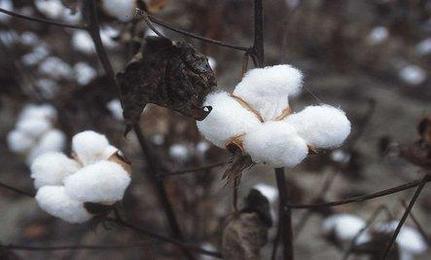The Environmental Justice Foundation lists several of the pesticides used in cotton growing: Aldicarb, Endosulfan, Monocrotophos, and Deltamethrin. These chemical products can cause harm to humans. Aldicarb is listed by the World Health Organziation as “extremely hazardous,” The Institute of Science in Society says that one drop can be fatal to an adult male. Endosulfan was reported to have caused 24 confirmed deaths of cotton workers in the African nation of Benin in 1999. An estimated 70 other deaths were reported from the same Endosulfan exposure. (Source: Institute of Science in Society)
The US Geological Survey stated in a paper explaining why they are investigating cotton production, “Cotton receives as much as 7 kilograms per hectare of herbicide and 5 kilograms per hectare of insecticide (Gianessi and Puffer, 1990).” As an indication of how these amounts compare to those used on a common food grain, they wrote, “These applications of pesticides are 3 to 5 times greater per hectare than applications of pesticides to corn, yet there have been no regional studies of pesticide fate in the cotton belt.” They noted there are eleven states in the cotton belt – where the majority of US cotton is grown.
The Organic Consumers Association has written, “Cotton uses more than twenty-five percent of all the insecticides in the world and 12% of all the pesticides. Cotton growers use 25% of all the pesticides used in the US. ” They also say, “75% of the cotton and cottonseed in the US is genetically modified.”
But insecticides used on cotton can also harm wildlife. North Carolina State University has a lengthy article on Pesticides and Wildlife in which they wrote, “Several foliar insecticides used on cotton are extremely toxic to wildlife; these include phosphamidon (Dimecron), dicrotophos (Bidrin), and dimethoate (Cygon).”
Not to mention the vast quantities of water used in cotton production. Some say the Aral Sea has been dried up due to the diversion of its water to cotton fields. It could be one of the most massive environmental disasters in modern history.
Organic cotton production for 2008-2009 increased 20 percent, but it is still less than one percent of global cotton production. Still, there has been a slight shift on the part of various companies who are trying to offer more organic cotton products. “Until recently an expensive rarity, organic cotton t-shirts are cropping up on supermarket and bargain retail shelves, from Tesco or Topshop in Britain to Auchan in France or Primark in the United States.” (Source: BusinessDailyAfrica.com)
Adapted from an article by Jake R.




